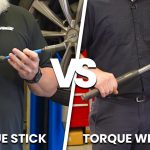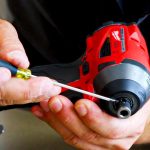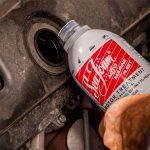Table of Contents
It must be so annoying to see your favorite tools losing their new look over time and getting rusty. People who work with various tools know that buying a good tool is an expensive and long-term investment. If you leave your tools exposed somewhere they can get in touch with immersion, the tools will be rusted. Rusting results from eroding metal that is divested into oxygen and moisture. It’s like an infirmity that spreads quickly from one tool to another. So it is necessary to take proper care of the tools.
Tips To Keep Your Tools from Rusting
You already know that a moisture-free area is key to keeping your tools away from rust. This article will share 10 tips to keep your tools safe from rust and enhance their overall longevity.
Use Toolbox Or Cabinet
Naturally, if you store your tools in a box, they will be much safer. On the other hand, if you keep your tools out in the open, then the likelihood of them rusting increases dramatically. So, it is recommended that you use enclosed containers. If they do not fit inside your toolbox, you can also put your big tools in a dry cabinet. The idea of safeguarding your tools in a box came from keeping your accessories away from humidity. Toolboxes are relatively affordable, and if you invest in one, you can be reassured that your tools will be safe and sound.
Organize Your Toolbox Nicely
Your tools will be safer if you properly organize your toolbox. For example, tools with dents or chips have a higher chance of rusting than others. Therefore, it’s essential to correctly sort your toolbox so they don’t crease while looking for a specific tool. Otherwise, you can damage them, which may cause rust to form. So, even if it takes some time, you should keep your toolbox organized. Don’t try to jam everything into one box. Instead, keep them evenly spaced out. It may seem like a mundane, time-consuming task, but having your tools organized neatly will leave you with a sense of satisfaction as well as prevent rust formation.

Line Your Toolboxes With An Anti-Corrosion Non-Slip Mesh Liner
You can also protect your toolbox by covering it with an anti-corrosion non-slip mesh liner. You can go outside and buy a corrosion-resistant non-slip mesh liner that will help your tools avoid rust. The anti-corrosion aspect of the liner will last up to five years, after which you will have to replace it. As the liner keeps your tools safe for a long time, it is a great way to save money. Mesh liners are not expensive. You can buy liners for all your toolboxes for a small fee.
Remember To Use Anti-Corrosive Spray Cleaner
Another way to prevent rust from forming on your tools is to use anti-corrosive spray cleaners. These sprays lubricate the tools, remove rust, and prevent corrosion. The way to use these anti-corrosive sprays is to spray the tools well and then dry them in the sun. Using an anti-corrosive spray will keep your tools rustproof for a few months. We recommend that you spray your tools after every 2 to 3 months. You can get this spray online or at a hardware store.
Ensure Proper Airflow
To ensure proper airflow, you can use a garage fan. A garage fan helps keep your tools away from the risk of oxidization. If your garage or workshop does not have enough ventilation facilities, a fan can significantly reduce the air’s moisture. One of the leading causes of rust is dampness. A garage fan pushes the air out of your workshop, making it easier to store tools dry.
There are many ways to set up a garage fan. People put their fans facing toward the toolbox, and some use them as ceiling fans. How you set up the fans depends on the size of your garage. The larger the space, the more airflow will be needed. You will also feel comfortable working if you have adequate ventilation.
Install A Dehumidifier
A dehumidifier is another excellent device to keep your tools dry and moisture-free. It is an electrical device that absorbs water from the air. By using it, you can reduce the water content of air by 30 to 50 percent. However, just because you have a dehumidifier installed does not mean you don’t have to worry about your equipment. You still need to be careful about where you store your tools and maintain them.
Weatherproof Your Workspace
Check for dents and leaks around your toolbox or storeroom if you see rust after taking all the precautions above. Even the most minor leaks can let in air, and the moisture in that air can damage your tools. So wherever you place the tools, try to block all possible ventilation when you are not around.
Use Silica Gel Packs
Silica gel packs are specifically developed to absorb moisture from the air. Therefore, if there is no humidity, your instruments will not corrode. Buy silica gel packs from the store and put them in your toolbox. Silica gel creates an extra layer of protection for your tools and prevents your equipment from getting damaged. Silica gel packs can last up to 4 to 5 months quite easily, after which you will need to replace them. Manufacturers also provide silica gel inside newly purchased items, which you can reuse to safeguard your tools.
Avoid Keeping Your Tools Outside

Many people keep their expensive garden tools outside – such as lawnmowers, edgers, and blower vacs – just as many people place their shovels and racks on the cold, damp concrete floor in the corner of the workshop. So, these tools are the most prone to rust, which is not surprising. Therefore, it’s recommended that you hang your equipment on the sidewall of your workshop and use an anti-rusting spray regularly.
Keep Hand Tools and Power Tools Separated
You should keep your hand tools, and power tools separate to prevent rusting. Hand tools are lightweight, so they can fall easily or get knocked down. As a result, your expensive power tools can get scratched. Also, you don’t use power tools often, so your body moisture on hand tools can affect power tools. Moreover, power tools produce a lot of dust that absorbs moisture from the store, so keeping them away from standard hand tools is a great idea.
Wrapping Up
To avoid rust, you must store your tools properly in a dry and well-ventilated area. Be sure to store your tools on a shelf or a toolbox above the ground. If the atmosphere you are working in is very humid, it is mandatory to use a dehumidifier and linseed oil. We hope this article has given you some idea about preventing rust from forming on your tools.










Leave a Comment